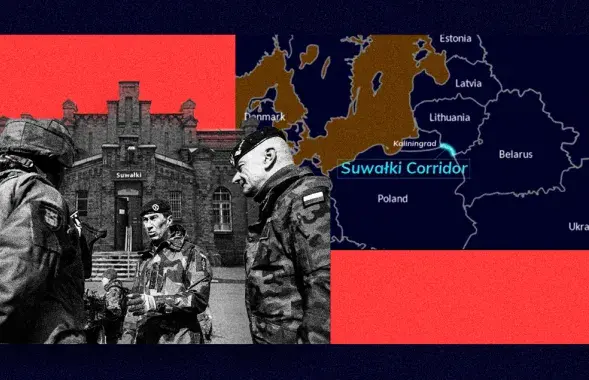Scanlan: We will not engage in bargaining for political prisoners
Head of US diplomatic mission in Belarus talks about economic sanctions, political prisoners and other topical issues of bilateral relations
Listen to the interview: 110902 Eurafokus.mp3
Euroradio: A few weeks ago six senators called for United States Secretary of the Treasury to vote in the IMF against approving a loan to Belarus. The senators also ask the Secretary Geithner to call upon Belarus authorities to make political and economic reforms. Otherwise, to introduce additional sanctions against state enterprises. Belaruskalii, Beltransgaz and Belarus refinaries are mentioned in the list among others. Does the government's view somehow differ from the senators'? Can we expect the introduction of new sanctions against the enterprises mentioned above?
Michael Scanlan: Since the founding of our republic, the United States has been based on the separation of powers among the legislature, executive, and judiciary. Therefore, I suggest you contact our Congress about the letter in question. I would like to note, however, that there is strong bi-partisan commitment in the U.S. congress supporting democracy and human rights in Belarus. Solidarity in Congress with the Belarusian people has never been so high as today because of the on-going repression.
Regarding sanctions, I think we first need to look at why both the EU and the United States have imposed them. The Government of Belarus continues to violate basic human rights and democratic principles and misuse the rule of law to punish people who have different views, such as the current political prisoners it holds. They need to be released immediately and unconditionally. I would also refer you to an August 30 statement by the spokesperson of EU High Representative Ashton calling for the immediate and unconditional release of all political prisoners.
Our most recent sanctions, announced on August 11, should not have come as a surprise to the Government of Belarus. As I have said many times before, our sanctions are linked to human rights and democracy. It’s a simple mathematical equation: if the human rights situation deteriorates, the sanctions become tougher, and vice versa. Unfortunately, even though the Government of Belarus acknowledged in a December 1 public statement issued in Astana that enhanced respect for democracy and human rights is essential to the progress of the country and its citizens, the situation has deteriorated severely in the meantime.
Euroradio: Regarding Belarus response to the US sanctions, did you expect that Belarus could suspend a joint program for exchange of highly enriched nuclear fuel? Also, could you please, provide more details about the MBA program at Belarus State University that was stopped?
Michael Scanlan: We were surprised by the Belarusian Government's decision: replacing HEU with LEU is in Belarus' interest. As State Department spokesperson Mark Toner recently said, "we hope that Belarus intends to meet its stated objective of the elimination of all of its stocks of highly enriched uranium. This is a responsible contribution to global security." Nonetheless, the U.S. offer to help eliminate highly enriched uranium in Belarus remains in force, as do all our programs that help Belarus adopt international and European standards.
For example, the MBA program in Business Administration was a common effort of the U.S., Latvian and Belarusian governments. It was intended to be the first ever internationally-accredited MBA program taught in English in Belarus. The U.S. Government allocated over $4 million to create a world class student environment with unhindered access to information, including a modern facility and American and international professors. This facility would have prepared Belarusian business people to operate at the highest international standard to meet the demand of international business and thus increase Belarus' competitiveness and prosperity.
Euroradio: IMF Executive Board discussed the Belarusian government's request for a bailout loan on Monday. What was the position of the US representative?
Michael Scanlan: I can't give you a "yes" or "no" answer since the issue is outside my immediate area of responsibility. However, to receive IMF credit an applicant country first has to meet economic conditions so that such aid is used to improve the fundamentals of the economy, and not just prop up an inefficient system. It is up to the Belarusian government to meet these criteria and convince the IMF of this.
However, looking more broadly at the issue, we believe that economic prosperity and democracy are inherently linked. Thus, true, sustainable prosperity cannot be secured without the rule of law, an independent judiciary, transparent government decision-making, and a robust private sector. None of this can work, however, without freedom of expression and the free flow of information.
Euroradio: How fruitful US cooperation with the EU (and other international actors) is on Belarus matters? Was a recent Obama's visit to Warsaw an important event of this kind?
Michael Scanlan: The United States and the European Union share a common vision of a democratic, prosperous, and sovereign Belarus where human rights are respected. Our numerous joint statements since December 19 underscore this shared belief. President Obama’s May 2011 visit to Poland was further proof of our common position on Belarus, both bilaterally with EU member states, as well as with the EU as whole.
The world's experience shows that prosperity and democracy are inherently interconnected—there cannot be one without the other on any sustainable basis. Thus, the immediate and unconditional release of all political prisoners would be the first step of Belarus in that direction. But let me make one thing clear: we will not engage in bargaining for political prisoners.
Euroradio: The Belarus government has recently sought to amend legislation on conducting mass assemblies and actions. The bill is to make responsibility for the organizers tougher. It is also to give the “previously appointed inaction” the same status as a certain action. Will the US push strong in the international forums to reject the bill and respect its obligations in this sphere? How interesting do you see the phenomenon of so called “mute protest actions”?
Michael Scanlan: I think the United States has made quite clear through its policy and actions at international fora like the OSCE the importance we place on respect for human rights and democracy in Belarus. Let’s be frank: the proposal to adopt a law to punish people for “doing nothing” is absurd. The right to assemble peacefully is a fundamental attribute of democratic societies: in the United States, for example, demonstrators regularly gather in front of the White House.
Regarding the Silent Protests, I was struck by how much effort the authorities exerted, and how many resources were used during an economic crisis, to detain and arrest people who merely stood silently or clapped their hands. Why did the authorities go to such lengths, do they fear their own people?
Euroradio: Mr. Scanlan, can you provide statistics how many US visas were issued to Belarus citizens for the last 5 – 10 years? How often does the US embassy refuse Belarus’ students in obtaining J1 visas?
Michael Scanlan: One of the major goals of our Embassy is to increase contact between our two peoples. Before the Belarusian Government in 2008 unilaterally forced us to reduce our American staff by eighty-five percent in retaliation for my government imposing economic sanctions to protest severe human rights violations, back then the Embassy processed over 13,000 visa applications annually. That meant thousands of Belarusians who, for example, had a chance to see New York and other cities, study at American Universities, or visit American friends.
However, given this severe reduction in our staff, we simply are not technically able to provide regular visa services. Consequently, Belarusians are now forced to apply for visas at US Embassies in neighboring countries. Thus I am unable to answer your question as we have no up-to-date issuance figures. We very much recognize and apologize to Belarusians for this inconvenience, but the issue is in the hand of your government, not ours.
Photo: RFE/RL



















